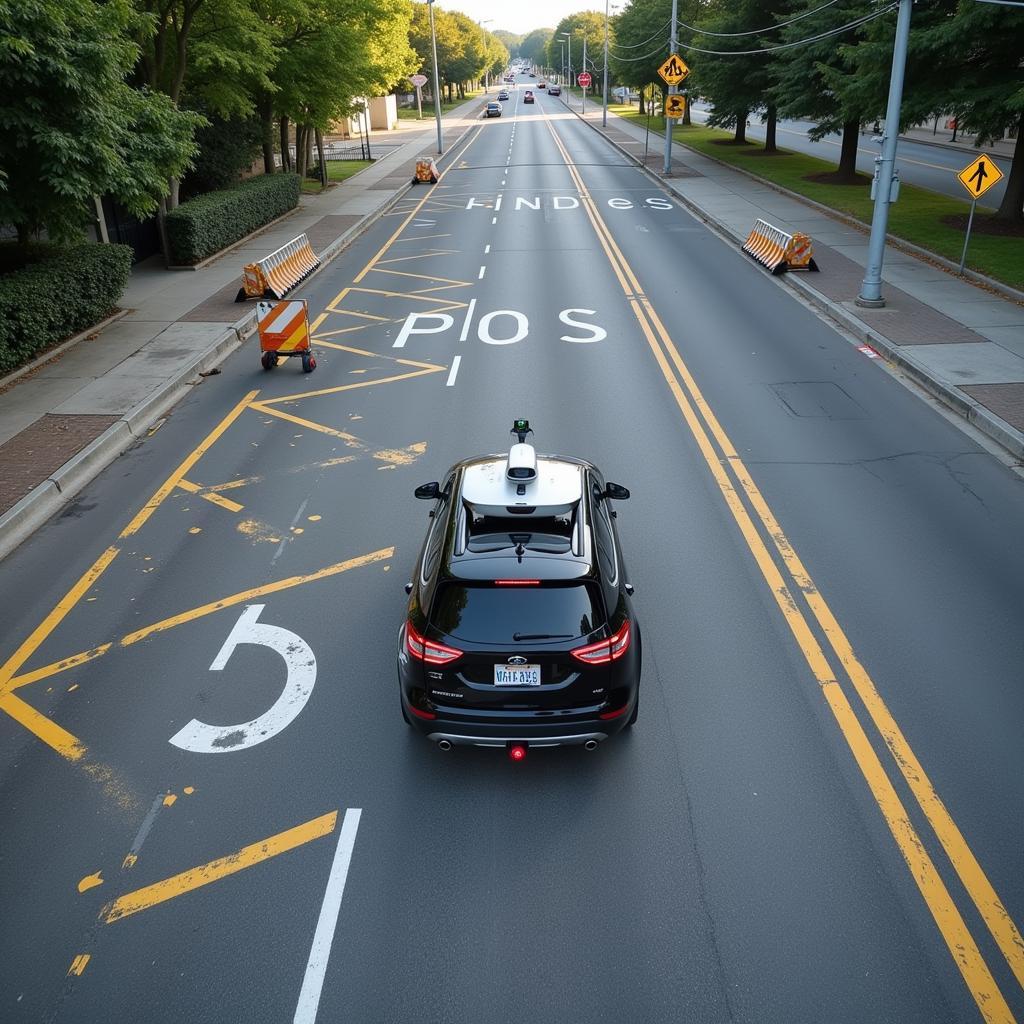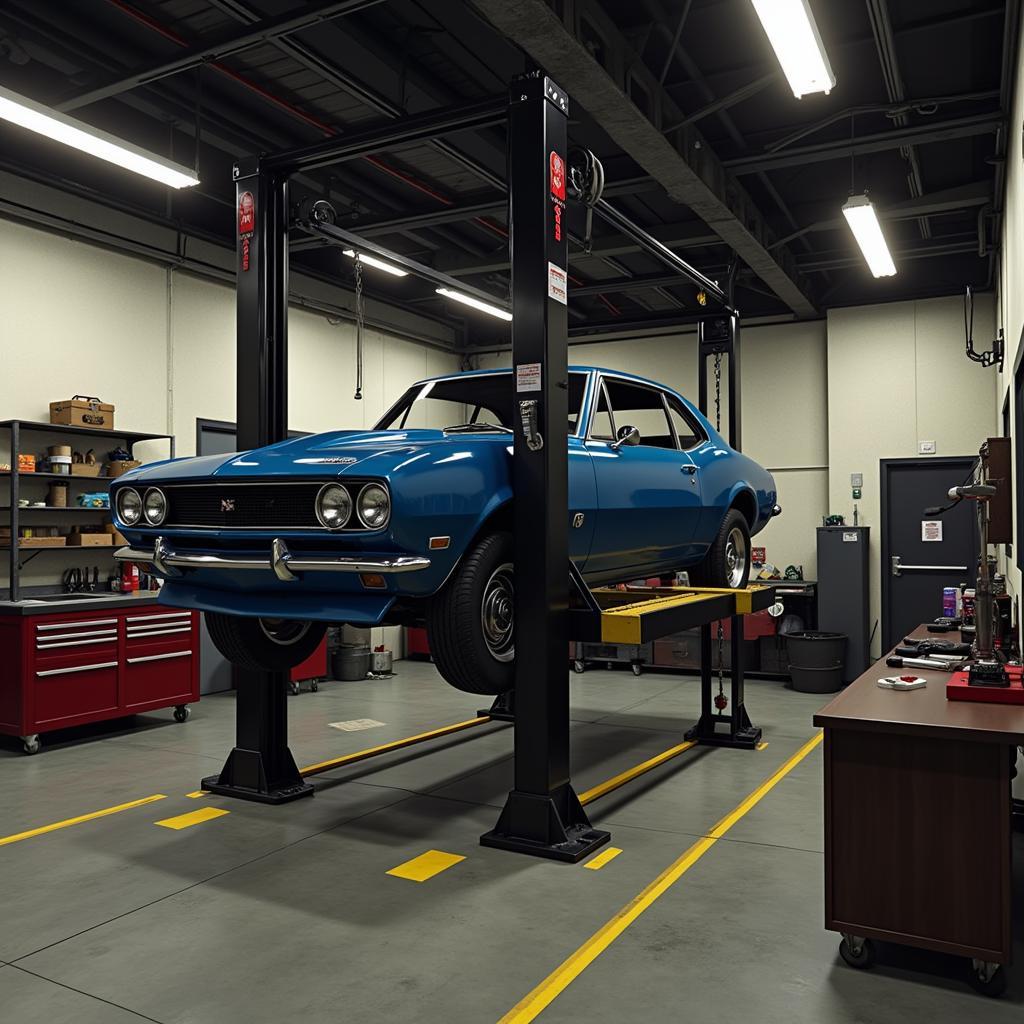A failing alternator can cause a cascade of problems, turning your reliable ride into a roadside nightmare. If you’re experiencing flickering lights, dimming headlights, or a dead battery, a bad alternator might be the culprit. This article will delve into the telltale signs of a faulty alternator, helping you diagnose and address the issue before it leaves you stranded.
Understanding the Alternator’s Role
The alternator is the heart of your car’s electrical system, constantly recharging the battery and powering all electrical components while the engine is running. Without a functioning alternator, your battery will eventually drain, leading to a complete electrical failure. Think of it as a continuous loop – the alternator charges the battery, and the battery provides power when the engine is off or the alternator can’t keep up with demand.
Common Signs of a Bad Alternator
Several symptoms indicate a failing alternator. Identifying these early on can save you from a major headache down the road.
Dim or Flickering Lights
One of the most noticeable signs is dimming or flickering lights, both interior and exterior. This happens because the alternator isn’t providing enough power to keep the lights operating at full brightness. Noticeable dimming, especially when accelerating or using other electrical accessories, is a strong indicator of alternator trouble.
Dead Battery
A dead battery is often a symptom of a failing alternator. Since the alternator is responsible for recharging the battery, a malfunctioning alternator won’t replenish the battery’s charge, leading to a dead battery. While a dead battery can have other causes, a bad alternator is a common culprit.
Warning Lights
The “battery” or “check engine” warning light on your dashboard is another telltale sign. These lights can indicate a range of electrical issues, including a bad alternator. When these lights illuminate, it’s crucial to get your car checked by a professional.
Strange Noises
A failing alternator might produce whining or grinding noises, often due to worn-out bearings within the alternator itself. These noises might become more pronounced when accelerating or using electrical accessories.
Starting Problems
A weak or dead battery caused by a bad alternator can lead to starting problems. If your car struggles to start or won’t start at all, a faulty alternator could be the underlying issue.
Electrical Accessory Malfunction
A bad alternator can affect the performance of various electrical accessories, such as the power windows, radio, and air conditioning. If these accessories aren’t working correctly, it’s worth checking the alternator.
The Smell of Burning Rubber
In some cases, a failing alternator can produce a burning rubber smell, often caused by overheating or a seized bearing. This is a serious issue that requires immediate attention.
Testing and Replacing the Alternator
Testing the alternator requires specialized equipment, so it’s best to take your car to a qualified mechanic. They can use a multimeter to check the alternator’s output voltage and ensure it’s functioning correctly. If the alternator is indeed faulty, it needs to be replaced. While you can replace the alternator yourself, it’s often a complex job requiring specialized tools and knowledge.
“A properly functioning alternator is essential for a reliable vehicle. Regular checks can prevent unexpected breakdowns,” says John Smith, Senior Automotive Technician at ABC Auto Repair.
What Problems Does Your Car Have With a Bad Alternator: A Recap
Ignoring a failing alternator can lead to a complete electrical system failure, leaving you stranded. By understanding the signs of a bad alternator and addressing the issue promptly, you can keep your car running smoothly and avoid costly repairs down the road.
 Jumpstarting a Car with Dead Battery due to Bad Alternator
Jumpstarting a Car with Dead Battery due to Bad Alternator
“Don’t wait until you’re stranded on the side of the road. If you suspect your alternator is failing, get it checked immediately,” advises Sarah Jones, Electrical Systems Specialist at XYZ Auto Electric.
Remember, regular maintenance and prompt attention to warning signs can save you time, money, and frustration. For expert advice and assistance, contact AutoTipPro at +1 (641) 206-8880 or visit our office at 500 N St Mary’s St, San Antonio, TX 78205, United States. We’re here to help keep you on the road.
FAQ
- How long does an alternator typically last? Alternators typically last between 7-10 years, but their lifespan can vary depending on driving conditions and usage.
- Can I drive with a bad alternator? You can drive a short distance with a bad alternator, but your battery will eventually drain, leading to a complete electrical failure.
- How much does it cost to replace an alternator? The cost of replacing an alternator varies depending on the make and model of your car, but it typically ranges from $300 to $700.
- How can I prevent alternator problems? Regular maintenance, including checking the drive belt tension and keeping the battery terminals clean, can help prevent alternator problems.
- What should I do if my car stalls due to a bad alternator? If your car stalls, try to safely pull over to the side of the road and call for roadside assistance.
- Can a bad battery cause alternator problems? While a bad battery won’t directly cause alternator problems, it can put extra strain on the alternator, potentially shortening its lifespan.
- Can I test the alternator myself? Yes, you can test the alternator with a multimeter, but it requires some technical knowledge. It’s generally best to have a qualified mechanic test it.






Leave a Reply